- Home
- Thomas H. Cook
Elena Page 10
Elena Read online
Page 10
In her essay on Sinclair Lewis’s most famous novel, Elena wrote: “For all his bourgeois shallowness, Babbitt never says that his wealth is the rightful product of his virtue or, conversely, that he wishes to be rich in order to be good. In this, there is at least a denial of that cant which propped up an older world, and perhaps even, for better or worse, a slight innovation in the moral philosophy of the West.” In a sense, I think, Elena was also talking about Sam Waterman, his openness and lack of pretense. For her, Sam was always the member of a class that began and ended with himself. “He was like the medieval definition of God,” she wrote in her obituary of him, “pure act.” It was his energy she loved, his ceaseless activity, his yearning for achievement, all of which flowed, as she said, “not from his thought but from his central nervous system.”
Sam retired in 1971, turning over his publishing house to Christina. During the next two years, she made editorial decisions that so in flamed him that he tried to regain control of the house. A court battle ensued, one so vitriolic that even the tabloid press began to follow it. Then suddenly, in the midst of the fray, Sam died. Had Mary been alive, she would no doubt have attributed the cause of death to excessive litigation.
In her remembrance of Sam Waterman, which appeared in the Saturday Review, Elena wrote: “Sam Waterman died of retirement, of too many strolls in the afternoon, too many aimless games of chess in the park, of too much idle chatter, too many dead companions. He died of forgone power and wasted zeal, of a lethargy of bone and eye and muscle, of feeling dead before one dies, worthless after a history of worth.”
But in the photograph he is still alive, along with the rest of us. It is 1928, and Elena has not yet come to New York. But the web is nonetheless in place, the system of connections that makes so much of life hinge on mere fortuity. Sam Waterman, desperate for his new publishing house to publish something, will read the manuscript of New England Maid and decide to issue it as his premier volume. Mary’s daughter, Martha, will write the first biography of my sister. Elena will fully cooperate in the writing of it, because of what Martha’s mother meant to her. These are the bonds by which ability becomes achievement, and they are, as Elena called them, “ambrosia to the fortunate, but to the luckless, bitter herbs.” Certainly no one has ever argued that they are fair, only that they powerfully exist.
Elena spoke only once of the four years she lived alone with my mother in Standhope while I lived at Columbia. We were walking on the beach near her home in Brewster, on Cape Cod. She was using a cane by then, though only for occasional support, and she had wrapped a long gray shawl around her shoulders. I remember thinking how beautiful she remained, even though her body was growing lean and frail, the understudy of a ghost.
I had driven down to the Cape from Cambridge, where I had been living for the last few years. She had written me a month before, telling me that she intended to reside on Cape Cod “from now on” and that she would not be returning to New York. My grandson, David, had helped her with the arrangements. She had gotten rid of everything she owned other than a few books, her letters, and her phonograph and record collection.
I arrived at Elena’s house in the middle of the morning and found her sitting alone on her glass-enclosed side porch, the shawl wrapped around her, a vision of Dickensian gravity, with the gray sea behind her and the white light of the morning sun slanting across the wooden floor in front.
She seemed very pleased to see me. She rose slowly as I came through the door and then walked over and embraced me with what seemed at the time an unusual strenuousness.
“How are you, William?” she asked as she stepped back, releasing me.
“Fine. And you?”
“Good. Are you hungry?”
I shook my head. “No, not at all. I ate something on the road. It breaks the long drive from Boston.”
“Would you rather go inside?”
“No. Let’s stay out here.”
We both seated ourselves with a slow, elderly caution, which both of us found rather funny.
“We’re turning to glass, William,” Elena said.
I nodded. “Of high quality, though. Crystal.”
We chatted about the details of her move. She asked if I would stay the night, but I told her I was taking a plane to New York for a visit with my grandson.
“David’s a wonderful boy,” she said.
“Yes.”
“Very helpful with the move.”
“So you’re not going back? You’re going to live on the Cape permanently?”
“Yes.”
“Don’t you think you should have waited for summer? Moving in November like this, just in time for the winter — it could get very bleak out here.”
“No,” Elena said, “it’ll be fine.” The old firmness was in her voice, the gavel going down.
I talked on for a while, mostly suggesting that I might pay her another visit, perhaps for New Year’s, or even sooner, perhaps when I returned to Hyannis from New York. I was roaming through the logistics of all that, the way old people do, aimlessly chewing at the possibilities, when Elena interrupted me in mid-sentence.
“Let’s go for a walk on the beach, William,” she said.
“It’s a little chilly for that, isn’t it?”
“Just a short one.”
“But what if we should fall down, old girl? We might not be discovered for weeks.”
She stretched out her hand. “We’ll help each other down the stairs.”
I was moving to take her hand when she stood up, the light suddenly catching her at an exquisite angle, turning her hair into a silver corona.
“Elena,” I said, “would you mind if I took a picture?”
“God, William,” Elena said, “still that old obsession with photo graphs.”
“Only one,” I told her. “It’s just the angle of the light. Very beautiful. Only one. If it doesn’t come out, well, my loss.”
“All right, but I really don’t want this to turn into a modeling session.”
“Agreed,” I said quickly.
I went to my car, retrieved my camera, and a few seconds later it was done. When, only a day later, I saw the picture swim into view under the red light of my darkroom, I thought my heart would stop. She is standing very straight, her body halved by the horizon, her hands folded around the mahogany cane, the great shawl falling from her shoulders, descending almost to the floor, her eyes staring at the camera with an odd intensity, yet almost humbly, as if offering it something, alms.
Elena and I were both sufficiently agile to make it down the stairs, and it was only at the bottom one, the last wooden step rising above the beach, that Elena offered her hand.
“There now, we’ve made it,” I said jokingly.
Elena poked her cane into the sand and leaned on it, her face turned toward the sea.
“Have you ever noticed,” she said, “how sometimes the sea seems famished? The waves come in with this craven appetite for the shore, gobbling it up. And then, at other times, they seem completely satisfied, small, halfhearted, sort of playing with their food.”
I assumed a mock-oratorical stance. “Yet winds to seas are reconciled at length, and sea to shore.”
Elena smiled. “What’s that from?”
“Samson Agonistes.”
She tucked her hand under my arm. “You always were a good quoter, William. Always had a very retentive mind. Would you believe it, I couldn’t quote a single sustained piece of verse.”
“Not even your own?”
“Possibly a few of my own,” Elena admitted. “But you know, Martha wrote me a letter a few days ago. She was asking about some interpretation of a line I had written. I couldn’t remember what the line was from. I had to look it up. It took me almost an hour to find it.”
“Do you hear from Martha often?”
“When she hits a snag.”
“Are there many of those?”
“A few.”
“Perhaps she’ll make an enigma
of you.”
Elena said nothing. Instead she looked out toward the sea again, then left and right down the beach.
“Which way should we walk?” she asked.
“Whatever suits you.”
She lifted the cane to the right.
“Let’s go that way, then. Toward the jetty.”
We moved closer to the edge of the water, where the sand was more tightly packed and easier to walk on.
It was one of those curious coastal days when the sky, though clear, seems faintly overcast, the usual blue giving way to a strange light gray which somewhat darkens the air without detracting from its clarity. It was windless, and the bay was a sheet of smoked glass.
I held Elena gently by her arm as we walked. She seemed thinner than I remembered. Her shawl had given her a bulk she no longer possessed.
“How far along is Martha on the biography?” I asked casually.
“She’s at work on that period when you were off at college and I was home with Mother,” Elena said. She tugged her arm from my hand. “I need it free,” she said. “For balance.”
“When does she think she’ll finish it?”
“I don’t know. Perhaps another two years or so,” Elena said. She stopped and gazed out toward the bay. The monument at Province-town could be seen very hazily across the water. She seemed entranced by the look of it, the lean gray tower rising out of the sea.
“That time when I was away at college,” I said. “Does Martha think it important?”
“I don’t know,” Elena said.
We began walking again. Far ahead, the stone jetty stretched out into the water, then disappeared. It looked like the remains of some once-exalted dream, to ring the world with one rocky band.
“I remember the way you looked when the train pulled away from the station in Standhope,” I said.
“And how did I look then?”
“Forlorn, my dear, terribly forlorn. But you looked even worse six months later when I came back.”
“It had been rather difficult, those first months alone with Mother,” Elena said.
“You looked very tired.”
“I probably was,” Elena admitted. “But you, William, when you got off that train, you looked like a new man.”
“In a way, that’s what I was,” I said. Which was true enough. Meeting Harry, Sam, and the rest of them had changed me quite a bit in a remarkably short time. I had gotten roaring drunk with Sam, criticized one of Tom’s poems, talked until dawn with Harry about the place of the patron in the arts, and given Mary a long, lingering kiss in a darkened movie theater.
Elena was looking out across the bay again. “It’s very beautiful when it’s calm. It could be anywhere in the world, some inlet off the China Sea.”
“Yes, very beautiful,” I said, but my mind was still on the day I returned to Standhope. “You met me at the station when I came back, remember? You brought me flowers, dandelions and daisies.”
“A little girl’s offering,” Elena said dully.
“I wouldn’t say so,” I told her. “I was very touched.”
Elena waved her hand. “Well, it seemed the least I could do, given Mother’s condition.”
She had declined rather alarmingly during the last six months. I had left her on the porch, nibbling ice. She had been able to understand that I was going away and had even wished me luck, though she did not know exactly in what regard.
“She had that vacant look when I came back,” I said as we continued walking toward the jetty. “A very vacant look. No information going in, no information coming out. It was like someone had pulled a plug.”
“By then,” Elena said, pulling her shawl around her shoulders more tightly, “she had begun to sink into herself completely. She never came out again.”
I shook my head. “I think she should have run away, Elena, taken some wild Italian lover.”
“Perhaps she might have, if we had not been born,” Elena said. “She might have run off with someone like that, gone with him to an island in the Aegean Sea. Grown old there.” She looked at me. “Grown old like us, and walked by the sea and dreamed of all she could have had if she’d just settled down in a small New England town and not madly run away with an Italian lover.”
I stopped and looked at her closely. “You could have chosen Whit man House for her.”
“I did, eventually.”
“I mean at first,” I said. “That’s what Father wanted from the beginning.”
“But not me, William,” Elena said. “I might have gone along with him, but then he started that business of moving me in with Aunt Hattie, moving to Pawtucket.” Her eyes narrowed. “I knew one thing: mother might end up in Whitman, but her only daughter was not going to end up in Pawtucket.”
“You still did your duty, Elena,” I told her. “You stayed with her those four years.”
Elena moved away from me. The tide was coming in. She dipped her cane into the water as she walked along.
“Martha wants to know a great deal about mother’s insanity,” she said.
“Yes, I suppose she does.”
“I feel very remote from all that, as if it were a part of someone else’s life.”
“That’s what youth is, Elena,” I told her, “the part that feels unreal.”
Elena looked at me pointedly. “But it was real, her madness. You weren’t so detached the day you came home.”
“I was furious,” I said. Even at that moment, on so subdued a day, I could still feel the anger that had risen in me when I saw my mother. “She was so helpless by then, completely helpless. And he hadn’t even been back to see her more than once or twice. Just that check in the mail every Wednesday, with those notes, the ones you showed me. ‘Keep Smiling. Dad.’”
Elena said nothing.
“Of course, I hadn’t come back either, had I?”
“No.”
“But you hadn’t let me know how bad off she was, how much of a burden to you,” I said emphatically. “He’d been back. He’d seen her. He’d seen you. He was a husband, and a father. He had responsibilities.”
“And so you went to see him in New York,” Elena said, “to discuss his responsibilities, to have it out with him, once and for all.”
“Yes, once and for all,” I said. “I was going to tell that bastard that he had to help you, and his wife.” I kicked at a broken shell, sending it skipping across the sand. “We met in his room when I got back to New York. He was dressed — can you believe this, Elena — he was dressed in a smoking jacket. Lord of all he surveyed, that little room with the plaid curtains, the mock-colonial bed and desk, the chest of drawers with the rollers under each leg.”
“He was given that room by mistake, William,” Elena said.
I stopped. “He told you about it? About that meeting we had?”
“Yes,” Elena said. “He said that the two of you had a talk in this dingy little room he’d been assigned by mistake.”
We began moving down the beach again. Elena allowed the tip of her cane to dance along the flattened sand.
“Well, he poured us both a little drink,” I said. “Then he sat down on the edge of the bed and asked me how I was doing in school. I told him I was doing fine.”
“Which was true enough,” Elena said.
“Yes. And so we began to talk about life at the university and all that,” I said. And I began to fall in love again with the life I had at college, with all my new friends, with the world that the university was opening up for me, and as I talked to him, it became very clear to me that I would do nothing whatsoever to endanger that life.
“And he enjoyed hearing about it, William,” Elena said. “He told me he did.”
“Yes, well, the problem is that I had not gone to discuss the life of the undergraduate in America,” I said. “I had gone to talk to him about our mother, and about you, about the whole intolerable situation back in Standhope.”
“Of course,” Elena said lightly.
I glanced
away for a moment, allowing my eyes to scan the bay. Then I looked at Elena.
“But of course, I never mentioned our mother once, or you, except in passing, or Standhope, other than that I had had a pleasant trip home. That’s what I called it, Elena, pleasant trip.”
Elena said nothing. She continued to walk steadily, her eyes latched to the jetty up ahead.
“And since you seem to know everything else,” I said, “you probably know why I kept my mouth shut about the real reason for my coming to see him.”
Elena was silent. Her cane tripped along beside her like a third, stiffened leg.
“Well, it became obvious that those little checks that arrived at Standhope every week were not the only ones he was writing. There were those other ones, too, the ones coming to me at Columbia, the ones that were making my current happiness possible.”
Elena still said nothing. She kept her eyes straight ahead.
I stopped. “Well, do you want this to be a full confession?” I asked. “A real mea culpa, from my heart?”
Elena poked the tip of her cane at the water’s edge. “No need for such dramatics. I’ve always known what happened between you and Father.”
“In every detail, evidently,” I said. “Look, Elena, I know it wasn’t easy for you, cooped up with Mother. I knew it wasn’t easy, believe me. But to tell you the truth, I’m just too old for another bout of self-loathing. It would turn my bones all soggy.”
Elena placed her open hand against my cheek. “You’re like the narrator of The Good Soldier, William, always telling sad stories, made all the sadder by your naiveté.”
I stepped back. “What do you mean?”
“You think being alone with Mother was a terrible burden for me?” Elena asked. “It wasn’t. It was a great release. Mother’s insanity gave me all the freedom I could have wished for in Standhope.”
“You’re joking.”
Elena shook her head. “No.”
“But all the work, all that daily drudgery. What about that?”
“The freedom was worth it,” Elena said firmly.

 The Interrogation
The Interrogation Sacrificial Ground
Sacrificial Ground The Fate of Katherine Carr
The Fate of Katherine Carr What's In A Name
What's In A Name Blood Innocents
Blood Innocents Peril
Peril A Dancer In the Dust
A Dancer In the Dust Breakheart Hill
Breakheart Hill The Chatham School Affair
The Chatham School Affair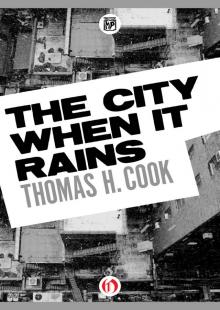 The City When It Rains
The City When It Rains Blood Echoes
Blood Echoes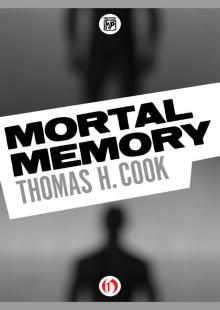 Mortal Memory
Mortal Memory Evidence of Blood
Evidence of Blood Into the Web
Into the Web The Crime of Julian Wells
The Crime of Julian Wells Blood Echoes: The Infamous Alday Mass Murder and Its Aftermath
Blood Echoes: The Infamous Alday Mass Murder and Its Aftermath Night Secrets
Night Secrets Places in the Dark
Places in the Dark The Orchids
The Orchids Elena
Elena Streets of Fire
Streets of Fire Instruments of Night
Instruments of Night Sacrificial Ground fc-1
Sacrificial Ground fc-1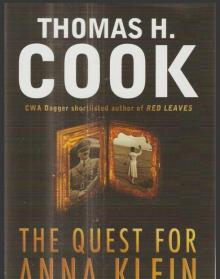 The Quest for Anna Klein
The Quest for Anna Klein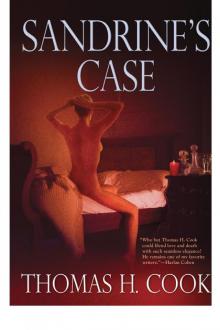 Sandrine's Case
Sandrine's Case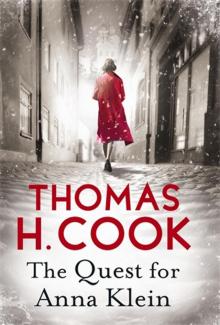 Quest for Anna Klein, The
Quest for Anna Klein, The Fatherhood
Fatherhood Flesh and Blood
Flesh and Blood Red Leaves
Red Leaves